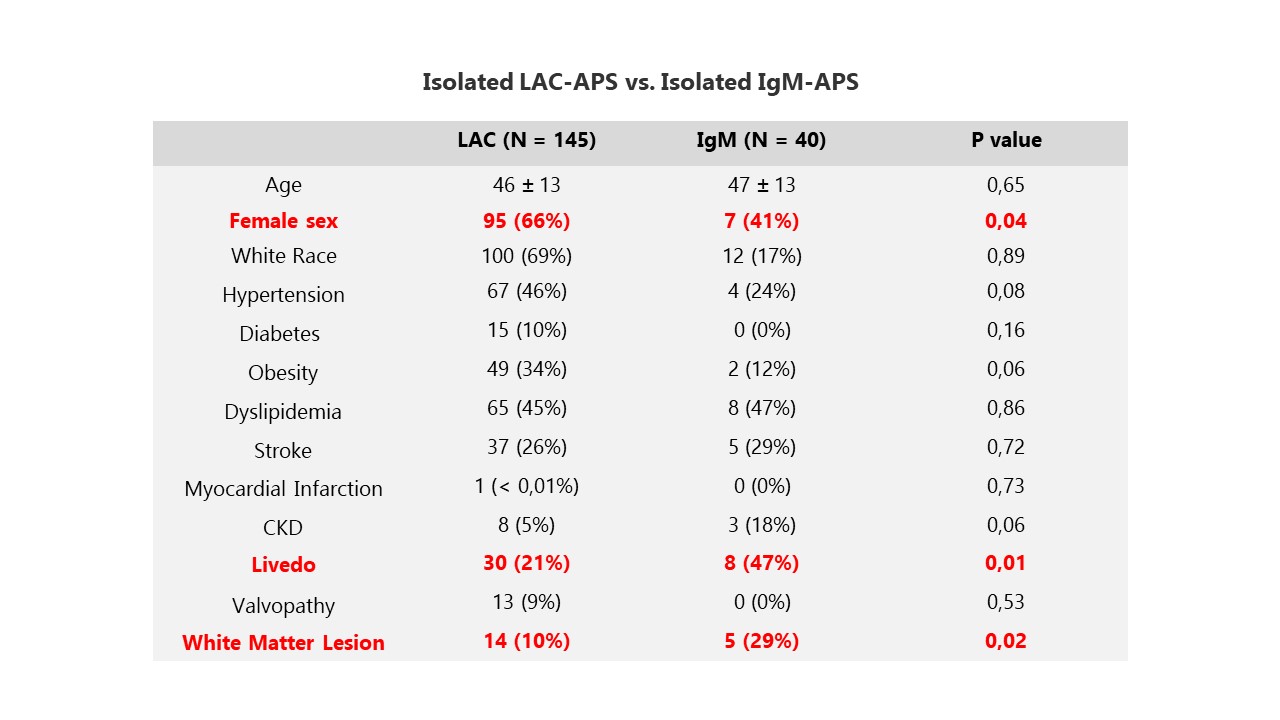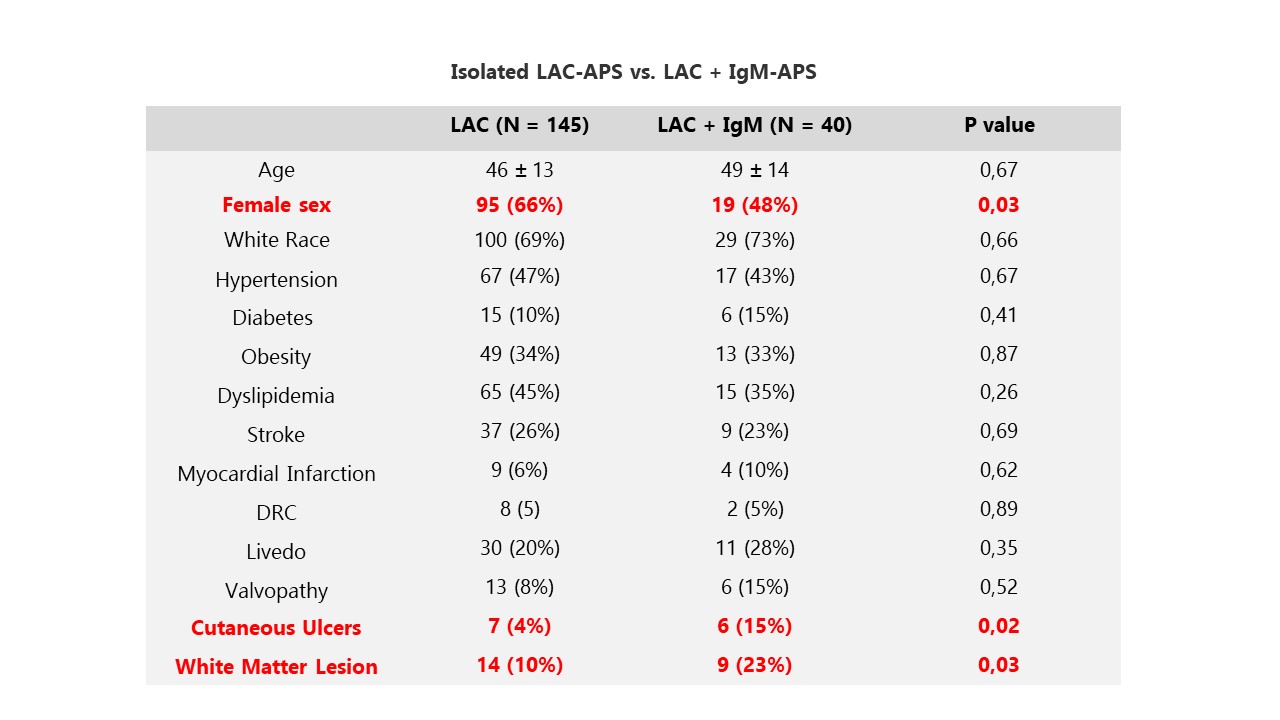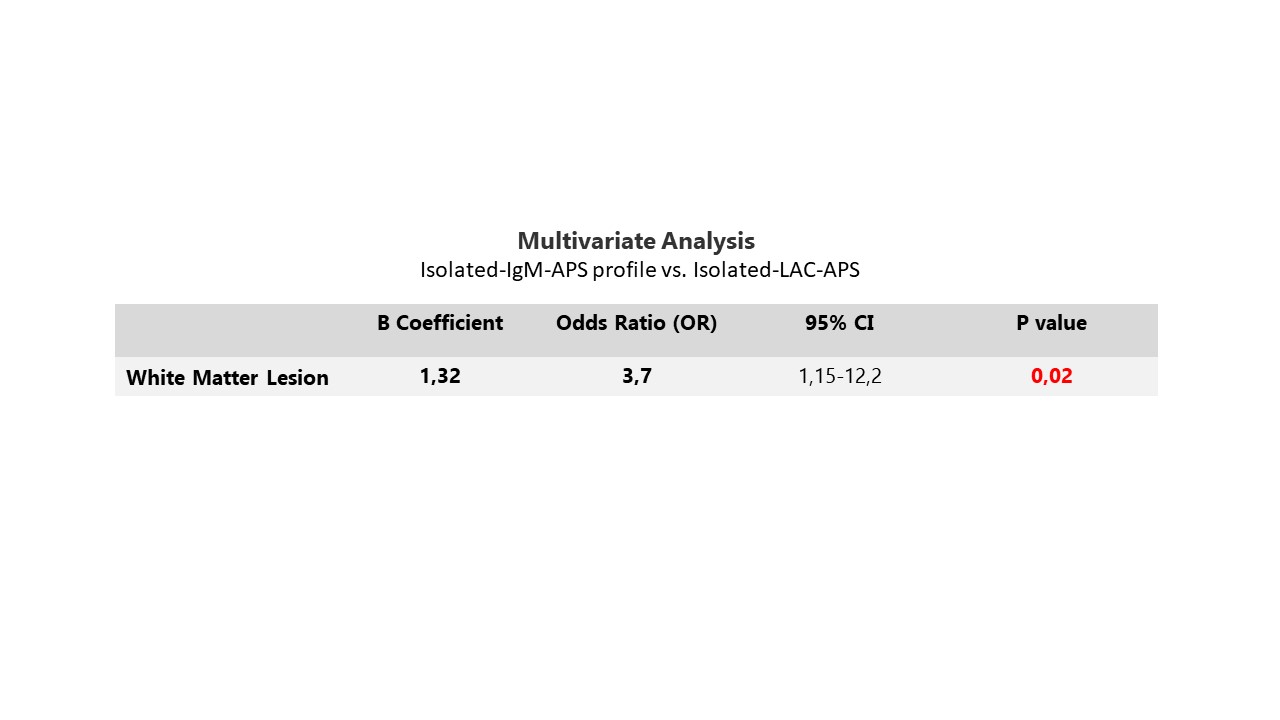Session Information
Session Type: Poster Session A
Session Time: 10:30AM-12:30PM
Background/Purpose: Antiphospholipid syndrome (APS) is characterized by the presence of antiphospholipid antibodies (aPL) associated with thrombosis and/or pregnancy morbidity. Although the presence of lupus anticoagulant has been strongly related to thrombotic events, the clinical relevance of IgM aPL is still under debate. We aimed to evaluate the impact of IgM aPL in the clinical phenotype of APS patients.
Methods: We retrospectively included primary APS patients from three different centers. Patients were divided into three distinct aPL profiles: isolated IgM antiphospholipid antibodies (isolated-IgM-APS), isolated lupus anticoagulant antibodies (isolated-LAC-APS), and LAC + IgM antibodies (LAC+IgM-APS). Inclusion criteria were diagnosis of primary APS with persistent aPLs titers > 40 GLP confirmed at least 2 times. Patients with secondary APS or other thrombophilias were excluded. Two main comparisons were performed regarding clinical data: (1) isolated-LAC-APS vs. isolated-IgM-APS and (2) isolated-LAC-APS vs. LAC+IgM APS.
Results: Two hundred two (202) patients were assessed; of these, 17 (8%) had isolated-IgM-APS, 145 (71,7%) had isolated-LAC-APS and 40 (19,8%) had LAC+IgM APS. There were no differences between groups regarding age at baseline. In comparison to isolated-LAC-APS, patients with isolated-IgM-APS had lower prevalence of female sex (41% vs. 66%; p = 0,049), higher prevalence of venous thrombotic events (41% vs. 66%; p = 0,049) and higher prevalence of obstetric events (59% vs. 26%; p < 0,01). There was a higher proportion of patients with livedo (47% vs 21%; p = 0,029) and with white matter lesion (WML) (29% vs 10%; p = 0,036) in the isolated-IgM-APS group. In multivariate analysis, white matter lesion (WML) was significantly correlated with the isolated-IgM-APS profile (OR 3,7; p = 0,02). In the second comparison (isolated-LAC-APS vs LAC + IGM-APS), patients with positivity for both LAC + IgM aPL had lower prevalence of female sex (48% vs. 66%; p = 0,038), higher prevalence of cutaneous ulcers (15% vs. 4%; p = 0,037) and higher prevalence of WML (23% vs 10%; p = 0,037) when compared to isolated-LAC-APS. No independent associations were seen in the multivariate analysis.
Conclusion: Our data supports the findings that IgM isolated aPL might have a pathogenic role in APS disease. Further studies in larger cohorts, like APS ACTION, might help us confirm our findings.
To cite this abstract in AMA style:
Lopes F, Coimbra Sousa A, Radin M, Balbi G, Cecchi I, Sciascia S, Signorelli F, Andrade D. Phenotypic Characterization of Patients with IgM Antibodies in Antiphospholipid Syndrome (APS) [abstract]. Arthritis Rheumatol. 2024; 76 (suppl 9). https://acrabstracts.org/abstract/phenotypic-characterization-of-patients-with-igm-antibodies-in-antiphospholipid-syndrome-aps/. Accessed .« Back to ACR Convergence 2024
ACR Meeting Abstracts - https://acrabstracts.org/abstract/phenotypic-characterization-of-patients-with-igm-antibodies-in-antiphospholipid-syndrome-aps/



